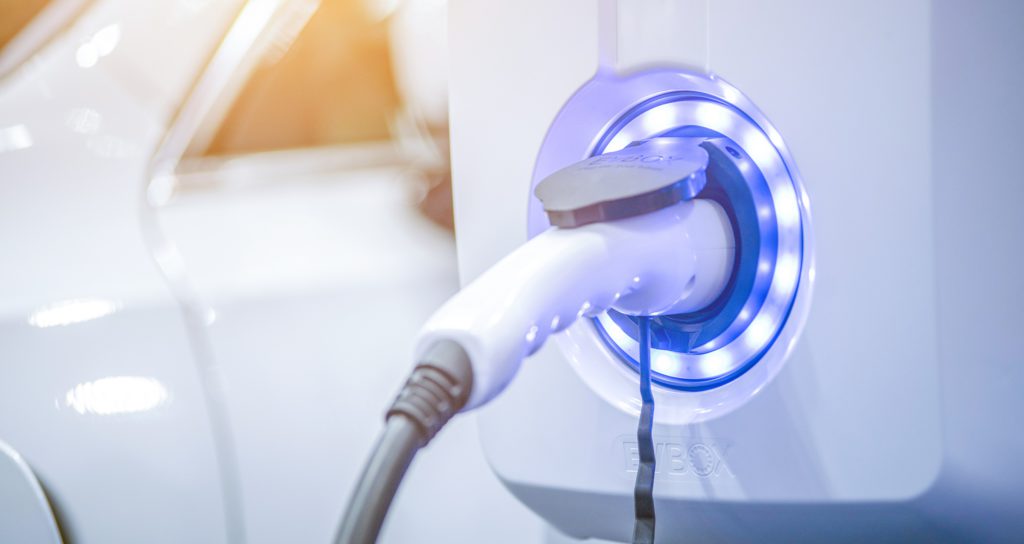FCA partners with NewMotion for corporate-fleet charging
17 December 2020

17 December 2020
Fiat Chrysler Automobiles (FCA) has entered into a new partnership with NewMotion. The Shell Group company will provide an electrically-chargeable vehicle (EV) ecosystem to the OEM’s corporate-fleet customers in 12 countries.
In the wake of coronavirus (COVID-19) and in the run-up to tougher emissions targets within the next decade, electromobility is taking the automotive industry by storm. Accompanying it is the energy sector, which looks to keep pace by swapping out pumps for plugs as a new market forms around increasing demand for EV infrastructure, backed up by updated legislation.
′Complete charging ecosystem’
In order to help FCA’s corporate fleet customers make the transition to electric mobility, NewMotion will supply them with access to its ′complete-charging ecosystem’. This includes the installation of EV infrastructure at workplaces and homes, as well as access to its network of 175,000 on-the-go chargers. FCA’s corporate fleet customers will also get access to back-office services, emergency customer care and end-to-end support, from sales intake to on-site installation.
′The partnership with NewMotion is one of the many services that Fiat Chrysler Automobiles offers to its clients, to simplify the life of those who decide to buy an electric or electrified vehicle,’ said Roberto Di Stefano, FCA’s head of e-mobility region EMEA. ′These are simple, innovative solutions that can transform any issues business clients may encounter with new types of e-mobility into opportunities.’
All of NewMotion’s charging points will be connected online, offering additional ′smart’ functionalities. For example, the infrastructure enables automatic distribution of available power to reach all the connected points. This will create greater charging efficiency for FCA’s customers, preventing unnecessary installation of more expensive rapid chargers or needless grid connection upgrades. EV charging can be combined with payment functions and data insights, so employees who drive a company car, but charge at home, can be automatically reimbursed.
Fleet managers of large businesses will also gain access to the ′business hub,’ which will enable monitoring, analysis and control over all aspects of their NewMotion infrastructure. The provider explains that managing charging across multiple locations can be complex, but this platform should help configure driver access, monitor usage and control costs.
A pan-European presence
The partnership will be rolled out across 12 countries over the next three years. These countries include Germany, France, the UK, the Netherlands, Belgium, Luxembourg, Switzerland, Austria, Finland, Norway, Sweden and Denmark. FCA chose the Shell Group member because of its pan-European presence, which offers one of the largest public-roaming networks.
′With over 10 years of experience in the industry, we have the expertise and knowledge to support the growing needs of the corporate fleet when making the switch to e-mobility,’ said Melanie Lane, CEO of NewMotion. ′Our ecosystem of smart-charging solutions that spans a large number of European countries means business customers who operate internationally or have multiple locations can be sure they can access the same solutions everywhere. We’re looking forward to supporting FCA in their effort to create a seamless EV-charging experience for their corporate customers.’
In November, NewMotion also announced a collaboration with BMW Group. The agreement will see the manufacturer’s customers and dealerships benefit from a similar range of workplace and home infrastructure solutions. Given the country’s €900 subsidy for private-charging points, customers are being given every reason possible to make the move away from internal combustion engines (ICE) and towards EVs.
By offering incentives, charging packages and electric ecosystems, governments and OEMs alike are trying to remove one of the largest remaining barriers to an electric transition; access to infrastructure. As confirmed by the European Automobile Manufacturers’ Association (ACEA), the EU’s charging network still falls far below what is needed to make this transition, with distribution remaining uneven across member states. If electromobility is the future of transport, more partnerships like these will be needed to ensure consumer confidence and uptake.